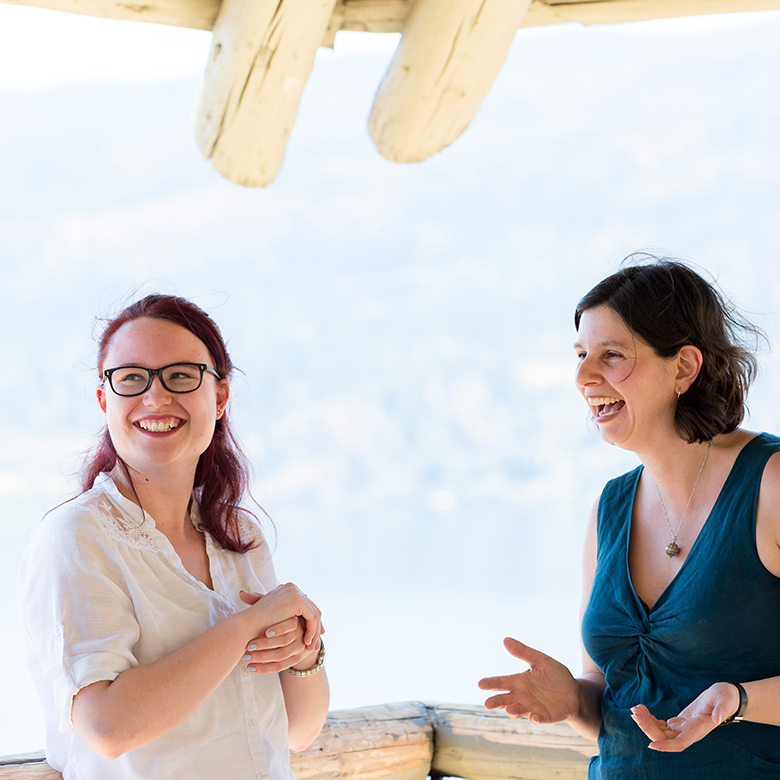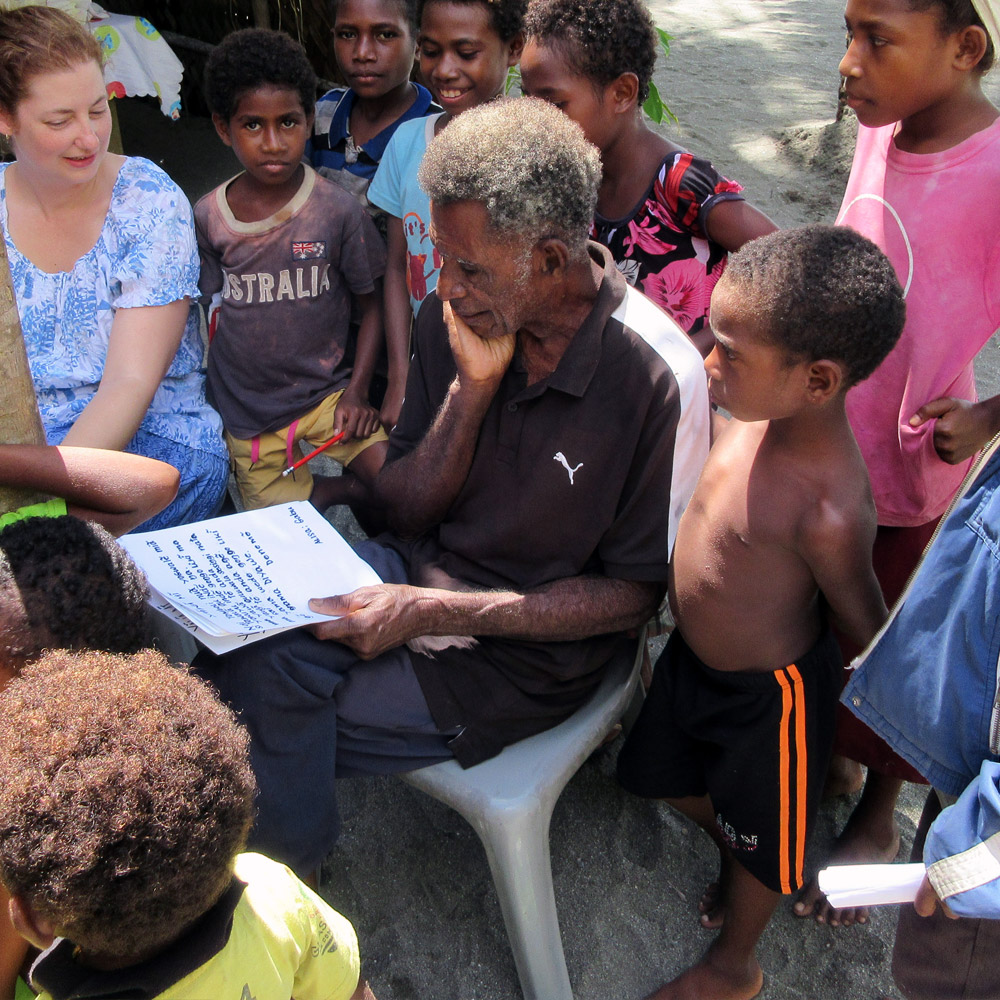At the UBC Okanagan campus, Interdisciplinary Graduate Studies (IGS) programs allow students to work closely with faculty across a diverse set of departments and disciplines. The IGS structure allows for inter-faculty and inter-campus arrangements to supervise students and offer courses. The course and program requirements provide structure to ensure quality in both the breadth and depth of the student’s academic experience. Students currently enroled in the IGS program have the option of continuing with their program, or transitioning to the Themed IGS program.
Graduate Degrees
| Program | Components | Duration |
| MA/MSc | Coursework and Thesis | 24 months |
| PhD | Coursework and Dissertation | 48 months |
The UBC Okanagan campus of UBC offers interdisciplinary graduate degrees across a wide range of program options. Defined Themes assist students in focusing studies towards particular areas of interest. In select circumstances, an individualized option (PhD only) offers coursework that is customized to the student’s specialized area of interdisciplinary study.
Students enroled in master’s programs will learn methods and acquire skills that enable them to undertake practical research on real-world problems in academic and non-academic contexts. Graduates of the master’s program are prepared for employment opportunities in teaching and research institutions, private-sector organizations and corporations, or for public-sector governmental and non-governmental organizations.
Milestones for the program include: completing coursework; preparing a research proposal; engaging in independent research; collecting and analyzing data; writing and defending the thesis; and publishing research results. Most students become teaching assistants (TAs) for at least one semester in order to gain valuable teaching experience and to learn effective communication strategies.
The master’s program requires a minimum of 30 credits for completion. Specific coursework requirements may vary from Theme to Theme and all specific courses applicable to the student’s program must be approved by the student’s supervisory committee. All masters’ students must be enroled in an IGS Theme.
The PhD is an advanced research degree that requires original and substantive contributions to the advancement of knowledge. Graduates of the PhD program are prepared for employment opportunities in teaching and research institutions, private-sector organizations and corporations, or for public-sector governmental and non-governmental organizations.
Formal milestones for the program include: completing coursework; passing a candidacy examination that demonstrates breadth and depth of knowledge in the chosen field and specialization; preparing and developing a research proposal for approval by the supervisory committee; and, completing and defending a dissertation. PhD students are also expected to communicate research results via conference presentations and publications in scientific journals. Most PhD students become TAs in order to gain valuable teaching experience and to enhance their communication skills.
At the PhD level, coursework beyond two program-wide mandatory courses is required only at the discretion of the student’s supervisory committee, depending on previous course credits from the prior Master’s degree and the nature of the student’s research objectives.
Themes
The UBC Okanagan campus offers interdisciplinary graduate degrees within a program (IGS) based on Themes. An IGS Theme is a defined area of interdisciplinary study supported by a group of faculty engaged in a common space of interdisciplinary, trans-disciplinary, and/or multidisciplinary research. Each Theme offers a specific group of graduate courses to advance the education and expertise of students in its interdisciplinary area, and its faculty members are available to assist and/or supervise students in their Theme-based program of master’s or doctoral studies.
The following IGS Themes are available:
Please refer to specific Theme pages for detailed admission requirements, tuition and funding information, and for instructions on how to apply. Please note: Interested applicants are encouraged to begin contacting potential supervisors. The formal application process for IGS Themes will open in the Fall.
Visit the IGS Student Hub for information and resources for currently enroled IGS students
PhD
Build a program that is flexible and responsive to your interests
| Program | Components | Duration |
| PhD | Coursework and Dissertation | 48 months |
The UBC Okanagan campus offers interdisciplinary graduate degrees within a program (IGS) based on Themes. Under extraordinary circumstances, an individualized option is available for PhD students only. This option is restricted to graduate students who have first-class standing and who can acquire University-based or scholarship funding at the equivalent of full Tri-Council levels. The Individualized option builds a program that is flexible and responsive to the specialized interests of the student. In the Individualized IGS program option, the supervisor creates a supervisory committee in consultation with the applicant. The committee and specified coursework are customized to the student’s area of study.
Admission Requirements
The College of Graduate Studies establishes the minimum admission requirements common to all applicants. Admission to this program is competitive and limited. Students will be admitted on the basis of the:
- student’s record of academic and professional achievements;
- letters of recommendation;
- quality and feasibility of the proposed study and research proposal;
- supervisor’s ability to support the program of study and;
- availability of financial and operational support.
Not all students who meet the minimum admission requirements will be accepted to the program.
More information
Visit the UBC Okanagan Academic Calendar for full admission and program requirements information; the calendar is a comprehensive guide to all programs, courses, services and academic policies at the Okanagan campus of the University of British Columbia.
Tuition and Funding
Tuition
All graduate students are responsible for keeping tuition payment and student fees up-to-date until the completion of their program. Students pay fees online through Workday.
Students who encounter financial difficulty during their studies should discuss the issue with their graduate supervisor. Graduate students at UBC’s Okanagan campus who have questions about tuition, or are in need of additional financial support, should visit the UBC Okanagan Student Services’ website.
Funding Opportunities
The College of Graduate Studies is responsible for merit-based graduate awards at the Okanagan campus. Graduate students at UBC’s Okanagan campus who have questions about funding opportunities should visit the College of Graduate Studies Tuition, Awards and Finance page.
How to Apply
Find a Supervisor
Make sure to contact the appropriate faculty before starting an application. Admission to the program requires the support of a faculty supervisor as well as meeting program-specific criteria for admission requirements.
Required Documents
A complete application package will contain:
- Online application and application fee
- Official transcripts for all post-secondary institutions attended
- Statement of Intent
- English language test (for non-native speakers of English)
- CV or resumé
- Two reference forms or letters
Deadlines
Applying takes time. Students are advised to start the application process two months in advance.
For full consideration students should submit all application materials by the following deadlines:
| Intake | Application Deadline |
| Domestic applicants | |
| September | January 15 |
| International applicants | |
| September | January 15 |
IGS Forms
For all IGS related forms, including the IGS Course Scheduling Form, please see our Forms database.








